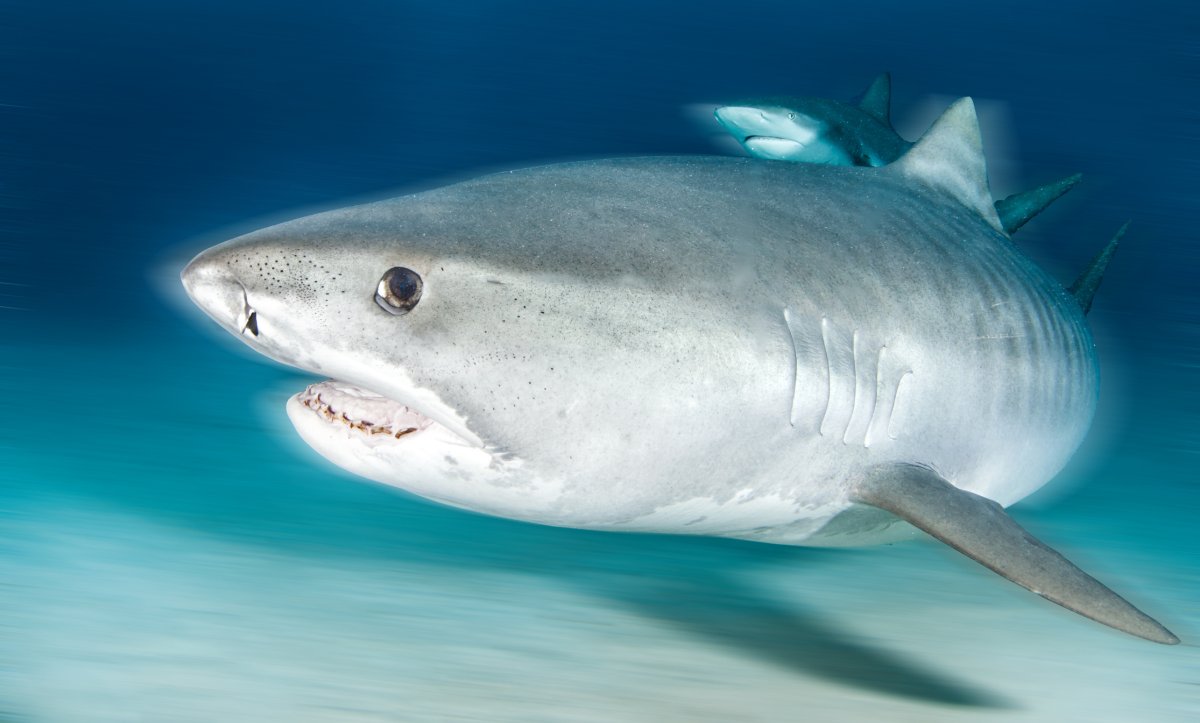A routine boat trip off the East Coast turned into nightmare for a group of friends after their yacht capsized and they were hunted by sharks, leaving only two survivors to witness and recall the carnage.
The yacht was sailing along the eastern seaboard to Florida in October 1982 when an unexpected storm hit the Trashman boat, causing it to capsize. The crew survived, but that was just the start of their ordeal. The harrowing story of the five crew members' attempt to survive was recently told in The Discovery Channel's Shark Week special Capsized: Blood in the Water, starring Josh Duhamel.
For days, the party floated on a life raft in the Atlantic Ocean off the coast of North Carolina, without food, water, or emergency equipment, The Sun reported.
Sharks are abundant in this region, with species including the blacknose, dusky, great white, hammerheads, and tiger sharks inhabiting the waters. The latter is one of the biggest and most dangerous to lurk in North Carolina waters. Unluckily for the Trashman survivors, tigers were the sharks which preyed on them.
Tiger sharks can grow up to 18 feet in length, their varied appetite earning them the nickname "trashcan with fins," as they feed on prey from dolphins to sea turtles, other sharks and garbage. As the Trashman tragedy showed, the sharks also feed on humans.
Meg Mooney was among those onboard as the Trashman sank, and suffered cuts to her arms and legs. Her blood mixing with the water likely attracted sharks to the stranded party. The creatures have a powerful sense of smell which enables them to detect prey from hundreds of yards away. Soon enough, the predators were circling the life raft, and smashing against the vessel, The Sun reported.

Survivors Deborah Scaling-Kiley and Brad Cavanagh watched as sharks devoured their boat mates over the course of five days.
"The minute we got in there were fins surrounding the dinghy," Scaling-Kiley said on the documentary I Shouldn't Be Alive, according to The Sun. "They were everywhere."
Three days after they were stranded, the crew were dehydrated and delirious. Convinced he saw land, Captain John Lippoth leaped into the water.
"All of a sudden we just hear this shrill scream," remembered Scaling-Kiley. "Blood-curdling. Then it was over, silence. There was no crying, nothing. There was no doubt what got him. The sharks got him."
In a similarly unstable state, their friend Mark Adams told the others he was heading to the store to buy beer and cigarettes. Scaling-Kiley and Cavanagh tried to save their friend, but they couldn't stop him jumping into the water.
As a shark fed on Adams, it hit beneath the boat, causing it to spin.
Scaling-Kiley recalled: "It was by far the most horrifying moment of my entire life."
Just Mooney, Scaling-Kiley and Cavanagh remained in the boat soaked in bodily fluids. Mooney's wounds festered, and a blood infection caused her to suffer intense hallucinations. Scaling-Kiley and Cavanagh woke to find her dead in a "fetid mess of seaweed, blood, urine and pus."
Cavanagh toyed with the idea of eating her, but decided against it as she was so sick when she died. The pair took the tough decision to give her a makeshift funeral, reciting the Lord's Prayer and Psalm 23, before removing her clothes and pushing her naked body into the ocean. They kept her jewelry and shirt to return to her family.
"We decided to go back to sleep so when the sharks attacked we wouldn't have to see it," said Scaling-Kiley.
Five days after the tragic ordeal began, a Russian cargo ship appeared in the distance which the surviving pair managed to flag down. Scaling-Kiley and Cavanagh were saved.
Scaling-Kiley died of unknown causes in 2014, aged 54, while Cavanagh is a mariner in Massachusetts. He says he is still "living in survival mode."
About the writer
Kashmira Gander is Deputy Science Editor at Newsweek. Her interests include health, gender, LGBTQIA+ issues, human rights, subcultures, music, and lifestyle. Her ... Read more



